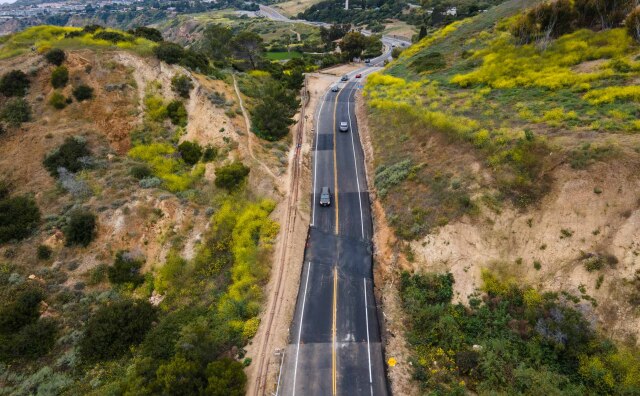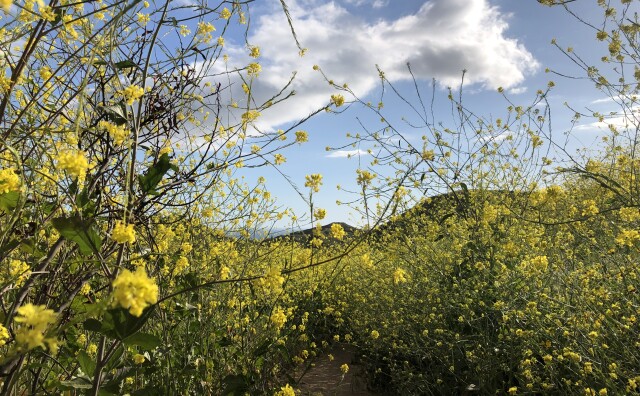When Saúl Maldonado’s first child attended Castellanos Elementary in the Pico-Union neighborhood, he remembers how she and her classmates would play on a schoolyard that was just asphalt and a big patch of dirt.
Now his younger child Nicholas plays in a much greener schoolyard at Castellanos — one with grass, native plants and more than two dozen new trees. Several log benches are spread out for students to socialize and jump with their friends. Games like Connect Four, Jenga and Tic-Tac-Toe are at the gathering spaces.
“It’s really going to make the kids more excited to come to school,” Maldonado says. “They won’t see it as being constrained to an education in school … they're actually getting to learn outside as well. So I think it's going to improve their grades or their attention span.”
Nicholas, a kindergartener, was one of the many students who blew bubbles, ran through the grass and ate elote with friends on log benches on Wednesday during a ribbon-cutting ceremony for the new yard.
“I like that there’s another playground we can play on,” Nicholas says. “It’s better.”
Many of the students LAist interviewed agreed it was a great space to play soccer and other outdoor games with friends.

-
What candidates can — and can't — say they do
-
Nonprofit's launching fundraiser to keep it afloat
-
USC study documents what residents want from trees
An 'urgent need'
The yard was made possible with help from the Trust for Public Land. Its goal is to make 28 L.A. County schools greener and more sustainable in time for the 2028 Summer Olympics. The nonprofit has raised just over $2 million for the Castellanos project with partners that include Nike, Boeing, the Chuck Lorre Family Foundation and the California Natural Resources Agency’s Urban Greening Grant Program.
“Anything that we can do to support students to thrive everyday at school is an urgent need,” says Robin Mark, the L.A. program director for The Trust for Public Land. “The spaces that we've created here really allow for more imaginative play and for kids to really be able to do their own thing, jump off logs, jump off boulders, build fairy houses with the mulch, really explore their natural environment and do the type of play that feels authentic to them.”
Before the makeover, Castellanos Elementary was one of more than 600 campuses in the Los Angeles Unified School District with schoolyards that were mostly asphalt. LAUSD officials are currently grappling with how to relandscape schools to include more green spaces. There is a goal to make all campuses 30% green by 2035, but it’s unclear when a final plan for that will be released.
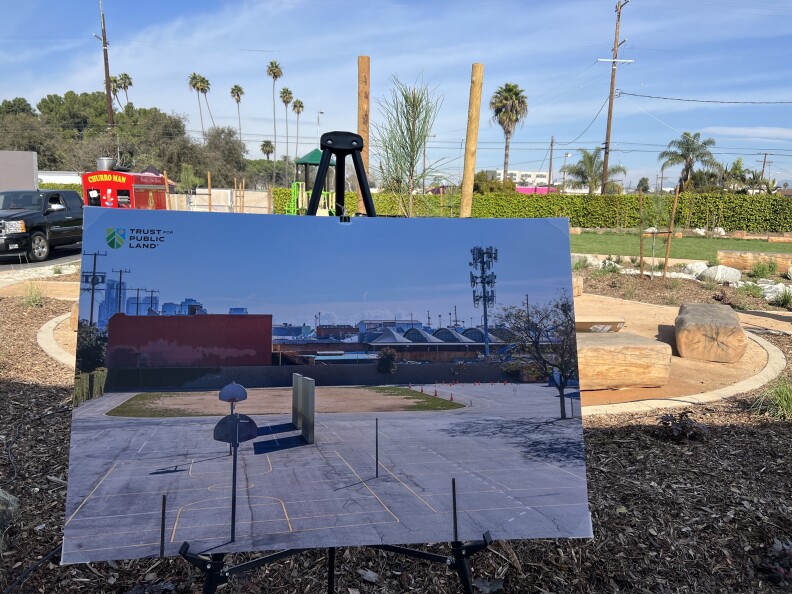
We know that our climate situation is only getting hotter. We need to plant trees now so that in 10 years, this school environment is livable, and the students can be here and they can play outside.
Parent groups and advocates across L.A. have been pushing for their children’s schoolyards to include more trees and plants, especially those campuses in neighborhoods like Pico-Union, which has been noted for not having enough quality parks. As we face increasing evidence of a warming climate, there’s concern that many schools do not have enough shade or other means for kids to cool down.
Research shows that extreme heat can negatively impact students’ ability to learn, which results in lower academic performance. Other studies have found that students benefit from time spent outdoors and that exposure to nature can help kids focus better.
A sustainable schoolyard
When this project started, students at the Castellanos site were brought in on planning and helped design their ideal schoolyard. Many of their requests — like a grassy area to play soccer, trees and new playground equipment — were incorporated once a landscape architect was hired to do the job. The construction team removed 1,500 square feet of asphalt.
The students can now enjoy 26 new native trees, more than 500 native shrubs and a shaded outdoor classroom, all along a pathway made of decomposed granite.
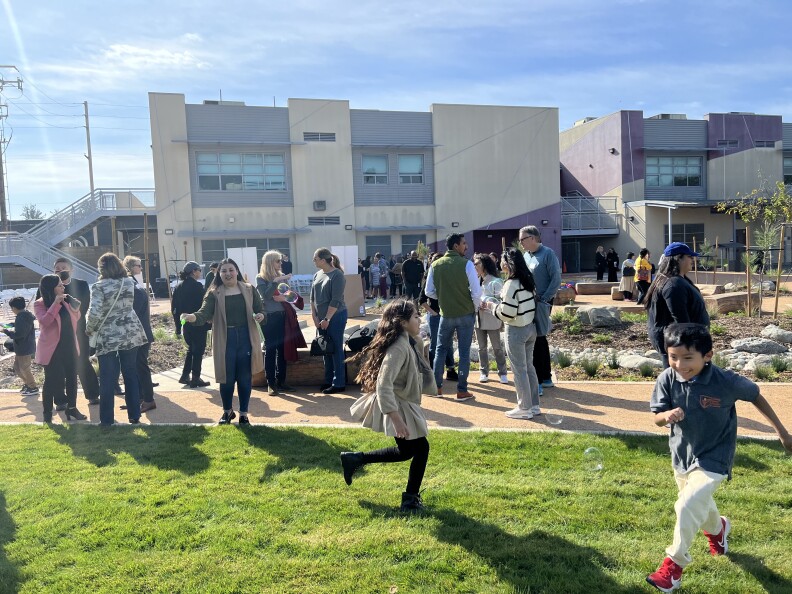
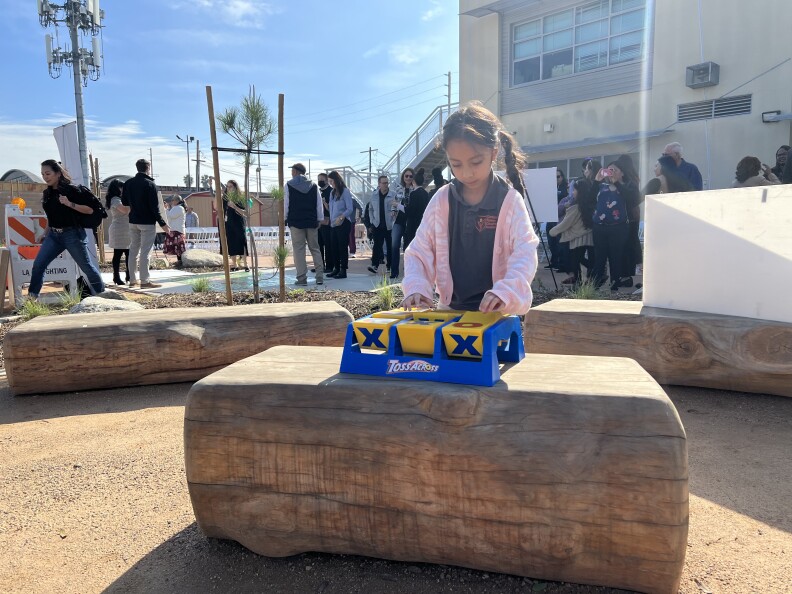
But there is even more to the playground. The Trust For Public Land wants it to be sustainable. In addition to native and drought tolerant plants, there is also a bioswale — a vegetated ditch that helps filter polluted stormwater. The cleaner water then goes out to the L.A. River.
“We try to use as many natural materials as possible,” Mark says. “Real boulders, real plants, real grass. We're using nature-based solutions to deal with the climate issues.”





